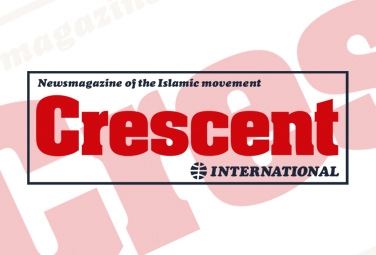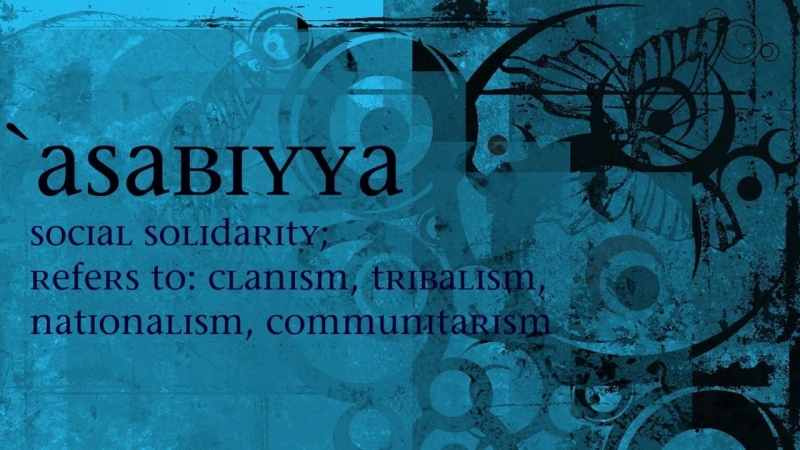How to lead the people fairly and justly
Developing Just LeadershipImam Ali ibn Abi Talib
Sha'ban 14, 1436 2015-06-01
Islamic Movement
by Imam Ali ibn Abi Talib (Islamic Movement, Crescent International Vol. 44, No. 4, Sha'ban, 1436)

Governor-elect of Kaduna State (Nigeria), Nasir el-Rufei reminds us about the important letter Imam Ali ibn Abi Talib (ra) wrote to Malik Ashtar outlining the attributes of a just and fair leader.
The following is a translation of a letter sent by Imam Ali ibn Abi Talib to Malik al-Ashtar. A classic discourse on Islamic representative leadership, it was presented to CI as a reminder by Nasir el-Rufai, Governor Elect, Kaduna State.
Know, O Malik that I am sending you to a land that has been through many regimes, both just and unjust. People will look at your administration with the same critical eye with which you have looked upon previous administrations, and will speak of you in the same way as you have spoken of those other rulers before you… Remember that righteous men are recognised by what Allah (swt) utters about them through the voice of His creatures. Let your most cherished treasure be your accommodation of good deeds, and this treasure can be collected only through keeping your desires under control; abstain from what is not permitted to you, no matter how ardently you may desire it. For those placed under your rule, cultivate compassion, kindness and love; do not become a predatory beast, seeking to devour them and regarding that your success. Among them there will be two categories of persons; those who will be your brethren in faith, and those who are nonetheless Allah’s (swt) creatures, like you and liable to mistakes… extend to them forbearance and forgiveness as you seek it yourself from Allah’s (swt). Do not exult in meting out punishment. Do not act precipitously when in anger; try instead to avoid and suppress anger.
Never say to the subject people that “I am your lord and ruler and you must bow down to my command.” Such an attitude will corrupt your heart, weaken your faith and invite disorder and destruction. And if authority and power breed in you pride and arrogance, call to mind the might and majesty of Allah’s (swt) above you… thus will your arrogance be curbed and your wayward senses recover the right path. Do not challenge the might of Allah’s (swt) and do not ever doubt His sovereignty, for He humbles the proud and humiliates the arrogant. When dealing with matters concerning yourselves or your close relatives or those among your subjects for whom you have a liking, remember to observe justice with Allah (swt) and with mankind. Otherwise you will tend to tyranny and oppression… Nothing turns away Allah’s (swt) blessing and attracts His vengeance more surely than tyranny and oppression.
You should always prefer the path of rectitude and moderation, the path of all embracing justice, the path that will best win the willing consent of the people. Remember that the contentment of the common people washes away the displeasure of the highly placed, while the latter is easy to suffer if the common man were contented. Remember that it is the persons of position, status and privilege who are the burden for the ruler in times of affluence, who are the least helpful in adversity, who are resentful of justice, who are ever importunate in their demand, who are the least grateful of favours granted them, who are stubborn in their refusal to listen to reason if their demands cannot be satisfied and who are the least steadfast when conditions alter adversely. And it is the common people who are the pillars of faith, who constitute the true Muslim community and the strength against the enemy. Of them, therefore, you must maintain close contact. Everyone has failings, and it behooves a ruler to cover them. Do not pry into people’s weaknesses that are not apparent; try to correct the faults that come to light and leave the people’s secret faults to Allah’s (swt) judgement. Loosen every knot that makes for mutual ill will and hatred among the people and remove every cause for mutual calumny and enmity. Do not be hasty in lending your ear to the backbiter for he is false and deceitful, though he comes in the garb of the well-wisher. Do not take counsel from the miserly, for they will dissuade you from benefaction and make you dread poverty, or with the cowardly, for they will weaken your courage and resolve at critical times, or with the greedy, for they will incite you to amass wealth through exploitation and oppression. Miserliness, cowardice, and greed are different traits but they all flow back from lack of faith and trust in Allah (swt). The worst of counsellors is he who has been in the service of oppressive rulers and a party to their misdeeds. Do not take such men as ministers, for they are helpers and associates of tyrants. You can find a person who is intelligent and resourceful but who will not be carrying a burden of sins… only such men should you take as your companions in your private as well as your public life. And among them prefer those above all who are likely to tell you unpalatable truths without hesitation and to refuse to cooperate with you in doing anything that is disapproved by Allah (swt). Take for your companions God-fearing and truthful persons and train them not to flatter you or ascribe to you any good for which credit is not given to you.
Excessive praise tends to make one vain and arrogant. Do not treat good and bad men alike, for that will discourage the good and encourage the bad. Give every man the position that his deeds and conduct merit… Goodwill can be engineered among the subjects only if the ruler treats them kindly and graciously, removes their genuine difficulties and makes no demands on them that are not possible for them not to fulfil.
For the administration of justice, select the best available persons… who are not confused and agitated by the abundance or complexity of lawsuits or vexed and provoked by the quarrelsome conduct of parties, who do not cling to their mistakes, who do not persist with untruth after seeing the truth, who are not inclined to covetousness, who are not content with a superficial understanding of a matter, without fully considering matters to find out the truth, who are completely impartial and above all fear and favor once they have ascertained the truth and whom praise does not make vain and cannot corrupt. Such persons are indeed few. Having selected them… pay them well… give them such a position in the state that no courtier or executive officer can dare harm or influence them.
And be cautious of Allah’s (swt) corrective power in respect of the backward and depressed classes who have no support. These are the poor, the indigent, the incapacitated and the beggars, some who stretch their hands in supplication and others whose very look proclaim their needs. In Allah’s (swt) name, look after them and be mindful of the responsibility entrusted to you. Fix a share for them from the public treasury… You have been appointed guardian of the rights of all, and the concerns of position and power should not make you neglect them. That you have discharged many important duties will be no excuse for neglecting small ones. Do not therefore overlook the poor or turn away from them in pride and arrogance. Be especially mindful of those who are unable to reach you, who are a distasteful sight, and whom others dismiss with disdain… Treat them in such a way that you will be able to plead it before Allah (swt) on the Day of Judgement. And look after the orphans and the aged who have no source of support and who do not beg. Set aside a part of your time for those who seek your assistance, and during this time give yourself to them entirely. And remember not to stay aloof from the people for any length of time… Rulers are surrounded by persons who are close to them but who are often selfish, covetous, and dishonest… never make grants of land to any of your courtiers or relatives. They will no doubt desire to benefit from their privileged position, but you will earn a stigma in this world and the hereafter.
There is provision for all with Allah (swt), and every section of the community has a claim on its ruler for its necessities and welfare. If you enter into an agreement with an enemy or have offered him protection, carry out the agreement and honor your word with your very life. Of all the obligations placed upon man by Allah (swt) there is none that the entire world is so unanimously agreed about, in spite of differences in thought and outlook, as the fulfilment of one’s word. Avoid vanity, do not pride yourself on what you consider your fine qualities and do not let flattery and sycophancy please you, for it is in this way that Satan contrives to set naught the good deeds of the virtuous.
Do not permit hoarding. If a country is prosperous and happy, it can carry any burden. A country is ruined only when its people are in straitened circumstances, and this straitened condition usually arises from the greed of the ruler and his agents who are afraid of losing their position and privileges, and heedless of the lessons of history, are anxious to amass quickly as much wealth as they can. Do not make a show of any good that you may do to the people, nor ever think that what you have done is too much, nor go back on the promises you make to them. Set aside your best time for communion with Allah (swt), though all that you do is for Allah (swt) if your motive is pure and it makes for the welfare of the people. Do not appropriate to yourself anything to which all have an equal right and do not neglect the rights of others that are manifest, for it is your responsibility to see that rights are respected, and a time will come when all affairs will come to light and you will be called upon to answer for the oppression of the weak.




